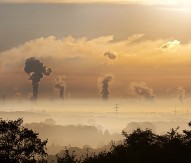
Maximising job opportunities in green economy outlined
The European Commission has adopted a Communication outlining the employment challenges and opportunities in the current transition towards a green, low carbon, energy and resource-efficient economy.
The Green Employment Initiative Communication presents an integrated framework to allow labour market and skill policies to play an active role to support this transition. The Communication focuses on the importance of anticipating and establishing adequate skills policies to support workers in coping with structural change, of securing labour market transitions, and of strengthening governance and partnership-based initiatives. It complements Communications on the Circular Economy and on a Green Action Plan for SMEs.
Commissioner for Employment, Social Affairs and Inclusion László Andor said: “The structural shift towards a green and resource-efficient economy is already bringing about fundamental changes across all sectors. It is an opportunity to generate high quality, environmentally friendly jobs, while securing the sustainable wellbeing of future generations and contributing to the recovery from the economic crisis. If we implement the right polices, the green economy will play a critical role to increase European global competitiveness and support the Europe 2020 Strategy objectives.”
Environment Commissioner Janez Potočnik added: “The shift to a green and resource efficient economy is above all an opportunity to increase European global competitiveness and create sustainable and high quality jobs. The Green Employment initiative will help ensure that environmental and employment policies converge and play an active role in supporting this process.”
The Communication sets out an integrated framework for employment and labour market policies at EU and national levels, including bridging skills and knowledge gaps by fostering the development of appropriate skills and better forecasting skills needs; anticipating sectoral changes, securing transitions in employment and promoting mobility; supporting job creation through shifting taxation away from labour and on to pollution, promoting green public procurement, entrepreneurship and social enterprises; and increasing transparency and data quality to improve monitoring and analysis of labour market impacts of the green economy in the European Semester.
European Climate Commissioner Connie Hedegaard said: “In a Europe with 26 million unemployed Europeans, it is not enough to create growth. We must also expand in areas that can generate jobs. The green sector offers enormous potential for job creation and we have to make sure Europe can harvest its benefits in full.”






